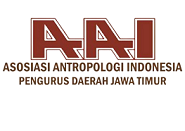Challenges of public-school elementary mathematics teaching in the new normal
Downloads
At the onset of the Covid-19 pandemic, educational institutions worldwide needed to continue with their educational mandates for their learners, albeit not in the usual face-to-face modes. The Higher Education Institutions (HEIs) in the Philippines as well had to replace the on-campus teaching-learning modes with several variants of remote teaching. However, the various remote means are something quite new to both educators and learners, especially in mathematics, wherein various onboard instructions and on-desk hands-on exercises had been the norm. This study used of quantitative approach through online surveys to identify the educators' challenges with remote teaching implementations in public schools in the Philippines. The findings reveal challenges related to the actual delivery of mathematics instruction, distractions from non-teaching tasks, curricular adjustments, alignment of materials, and orientation of parents or guardians and teachers. The pandemic may not be the last to impact the education system. Overall, the study shows an increased level of challenges for mathematics teaching. Thus, there is an urgent need to readjust policies and procedures affecting environmental learning conditions such as distractions, family-work-life balance, communication technology, rationalization of non-academic duties, increased participation, and support of parents and guardians.
Abuda, B. F. Q., & Noroña, R. V. (2020). Assessment of Secondary Schools' Readiness to New Normal and Health Literacy of Teachers in the Countryside Area of the Philippines. Countryside Development Research Journal, 8(1), 15–23.
Banal, C. L., & Ortega-Dela Cruz, R. A. (2022). Teachers' resilience in facing workload adversities in times of pandemic: The case of the private school teachers in a developing country. Indonesian Journal of Social Sciences, 14(1), 36–51. https://doi.org/10.20473/ijss.v14i1.35946
Cardino, J. M., & Ortega-Dela Cruz, R. A. (2020). Understanding of learning styles and teaching strategies towards improving the teaching and learning of mathematics. LUMAT: International Journal on Mathematics, Science and Technology Education, 8(1), 19–43. https://doi.org/https://doi.org/10.31129/LUMAT.8.1.1348
Culaste, I. C. (2011). Cognitive skills of mathematically problem solving of grade 6 children. International Journal of Innovative Research in Computer and Communication Engineering, 1(1), 120–125.
Dangle, Y. R. P., & Sumaoang, J. D. (2020). The Implementation of Modular Distance Learning in the Philippine Secondary Public Schools. 3rd International Conference on Advanced Research in Teaching and Education, 100–108.
Darkis, J. M. (2020). Views and challenges in teaching mathematics of elementary teachers in rural and urban school districts. Journal of Critical Reviews, 7(4), 107–112. https://doi.org/10.31838/jcr.07.04.19
Department of Education (DepEd). (2020). Adoption of the Basic Education Learning Continuity Plan for School Year 2020-2021 in the Light of the COVID-19 Public Health Emergency. Retrieved December 12, 2021, from https://www.deped.gov.ph/2020/06/19/june-19-2020-do-012-2020-adoption-of-the-basic-education-learning-continuity-plan-for-school-year-2020-2021-in-the-light-of-the-covid-19-public-health-emergency/
Department of Education Republic of the Philippines. (2020). DepEd Order No.12, s. 2020. Retrieved from https://www.deped.gov.ph/wp-content/uploads/2020/06/DO_s2020_012.pdf
Dhawan, S. (2020). Online learning: A panacea in the time of COVID-19 crisis. Journal of Educational Technology Systems, 49(1), 5–22. https://doi.org/10.1177/0047239520934018
Di Pietro, G., Biagi, F., Costa, P., Karpiński, Z., & Mazza, J. (2020). The likely impact of COVID-19 on education: Reflections based on the existing literature and recent international datasets. Luxembourg. https://doi.org/10.2760/126686
Guan, A. G. R., & Benavides, N. G. (2021). Parent-Teacher-Learner Collaboration in Facilitating Modular Instruction. United International Journal for Research & Technology, 2(7).
Gueta, M. F., & Janer, S. S. (2021). Distance Learning Challenges on the Use of Self-Learning Module. United International Journal for Research & Technology, 2(7).
Herbst, P., & Chazan, D. (2011). Research on practical rationality: Studying the justification of actions in mathematics teaching. The Mathematics Enthusiast, 8(3), 405–462.
Hom, E. J., & Gordon, J. (2013). What is Mathematics? Retrieved from https://www.livescience.com/38936-mathematics.html
Kintanar, F. C., Elladora, S. T., & Cuizon, F. R. (2021). Plight of the parents of the Filipino learners in the implementation of the modular distance learning. International Journal of Educational Science and Research, 11(2), 35–48.
Krasa, N., & Shunkwiler, S. (2009). Number sense and number nonsense: Understanding the challenges of learning Mathematics. Paul H Brookes Publishing.
Lago, J. M. L., & Ortega-Dela Cruz, R. A. (2021). Linking to the real world: contextual teaching and learning of statistical hypothesis testing. LUMAT: International Journal on Mathematics, Science and Technology Education, 9(1), 597–621. https://doi.org/https://doi.org/10.31129/LUMAT.9.1.1571
Mooney, C., Briggs, M., Hansen, A., McCullouch, J., & Fletcher, M. (2014). Primary Mathematics: Teaching theory and practice. Learning Matters.
Setapa, M., Mustapha, W. A. H. ., Kanafiah, S. F. H. ., & Zaman, L. (2016). A Study of Students' Perception toward Mathematic. Journal of Applied Environmental and Biological Sciences, 6(7S), 28–33.
Torres, R. A. O., & Ortega-Dela Cruz, R. A. (2022). Remote learning: Challenges and opportunities for educators and students in the new normal. Anatolian Journal of Education, 7(1), 83–92. https://doi.org/https://doi.org/10.29333/aje.2022.717a
Tria, J. Z. (2020). The COVID-19 pandemic through the lens of education in the Philippines: The new normal. International Journal of Pedagogical Development and Lifelong Learning, 1(1), 1–4. https://doi.org/https://doi.org/10.30935/ijpdll/8311
Tus, J. (2021). Amidst Covid-19 Pandemic: Depression, Anxiety, Stress, and Academic Performance of the Students in the New Normal of Education in the Philippines. International Engineering Journal for Research & Development, 6(ICMRD21), 1–13. Retrieved from https://iejrd.com/index.php/ /article/view/1760/1594
Verzosa, D. M. B., & Vistro-Yu, C. P. (2019). Prospects and challenges in implementing a new Mathematics curriculum in the Philippines. In School Mathematics Curricula (pp. 207–226). Singapore: Springer.
Copyright (c) 2023 Indonesian Journal of Social Sciences

This work is licensed under a Creative Commons Attribution-NonCommercial-ShareAlike 4.0 International License.
1. The authors agree to transfer the transfer copyright of the article to the Indonesian Journal of Social Sciences effective if and when the paper is accepted for publication. The authors can download the Copyright Transfer Agreement here.
2. The legal formal aspect of journal publication accessibility refers to Creative Commons Attribution-NonCommercial-ShareAlike 4.0 International License (CC BY-NC-SA).
3. Every publication (printed/electronic) is open access for educational purposes, research, and library. Other than the aims mentioned above, the editorial board is not responsible for copyright violation.

IJSS by Unair is licensed under a Creative Commons Attribution-NonCommercial-ShareAlike 4.0 International License.




















